[MISSION] Can Vocational Education Help Resolve Korea’s Youth Unemployment Crisis? An interview with Korea PEN Founder and CEO, Minjung Kim
2025-10-23With the recent tragic incident of a Korean university student killed in Cambodia due to organized crime linked to job scams, the issue of youth employment has become spotlighted in media and policy circles.
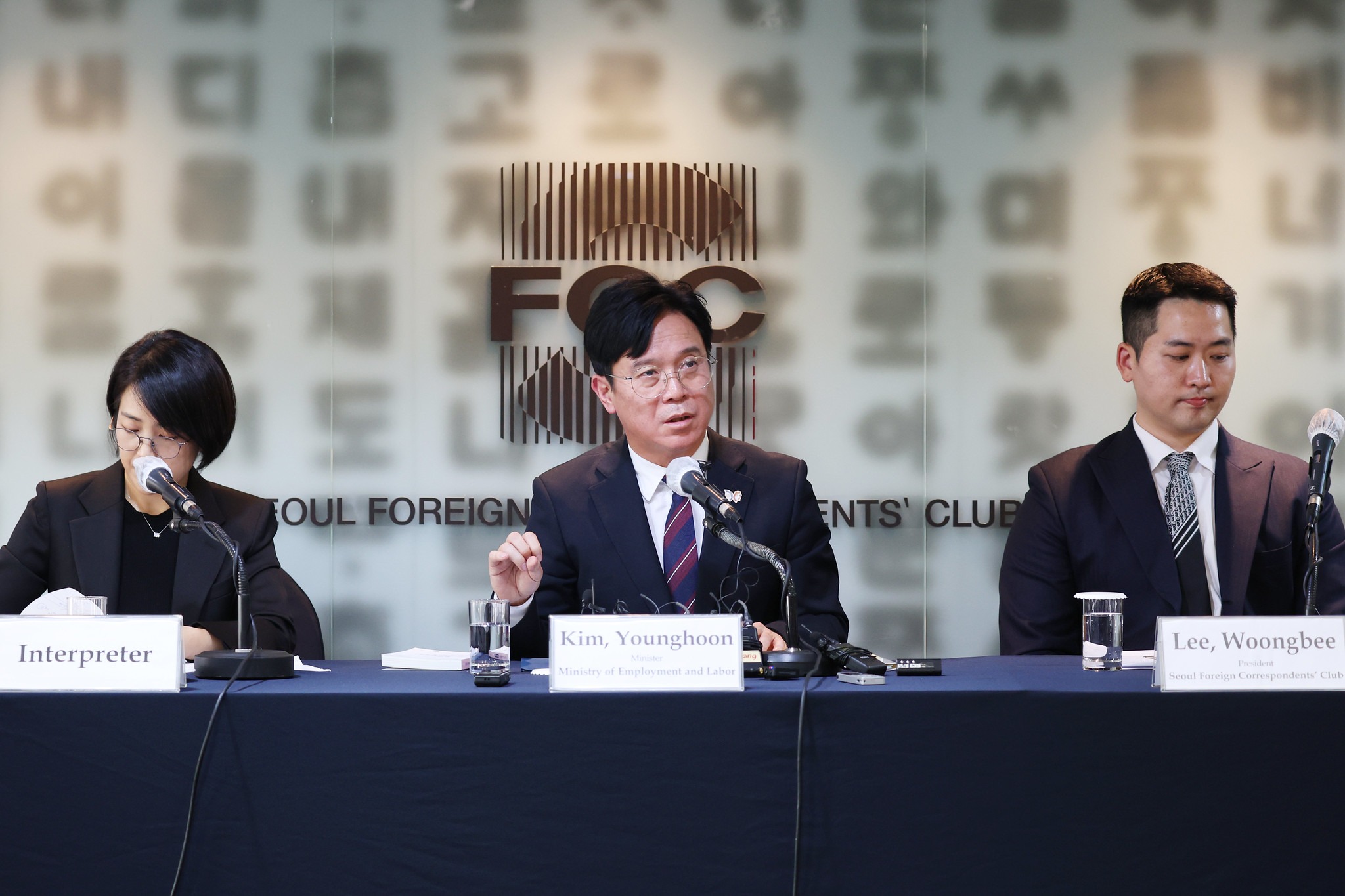
Image caption: Minister of Employment and Labor Kim Young Hoon speaking at the Seoul Foreign Correspondents Club's briefing at the Korea Press Center on October 20th. Image provided by Korea.net.
On Monday, October 20th, the Minister of Employment and Labor Kim Young Hoon spoke at the Seoul Foreign Correspondents Club's briefing at the Korea Press Center to share updates on the recently passed “Yellow Envelope Act” and related policies. He emphasised the need to develop policies that effectively reach so-called “resting” youth to “help them build competitive skills aligned with workplace demand, and expand the availability of quality jobs in small and medium-sized enterprises”.
While Korean dramas continue to portray the importance of large-sized companies, or ‘chaebol’, in Korea, series such as “Start-Up” (2020), “Itaewon Class” (2020), and “Tastefully Yours” (2025) point to the expansion of careers within entrepreneurship and hospitality, often positioning leading characters to hustle and forge their own path as an SME against the weight of chaebol influence.
Yet while entrepreneurship may be on the rise in certain sectors and age groups, there is also an increasing spotlight on those who are absent from the job market. According to a report by the Federation of Korean Industries (FKI) “resting” youth who were not engaged in work or job-seeking activities tallied up to 53.4 trillion KRW (approximately 38.3 billion USD) in economic loss between 2019 and 2023.
Striving to stimulate labor market absentees and stragglers while uplifting sectors of the economy that struggle with attracting the right talent may be the key to unlocking positive change. The Minister’s remarks reiterated the need to develop policies that foster inclusivity and diversity in the labor market - both when it comes to uplifting and upskilling the workforce, and promoting what may be perceived as hidden or undervalued job opportunities in new sectors, such as startups and SMEs.
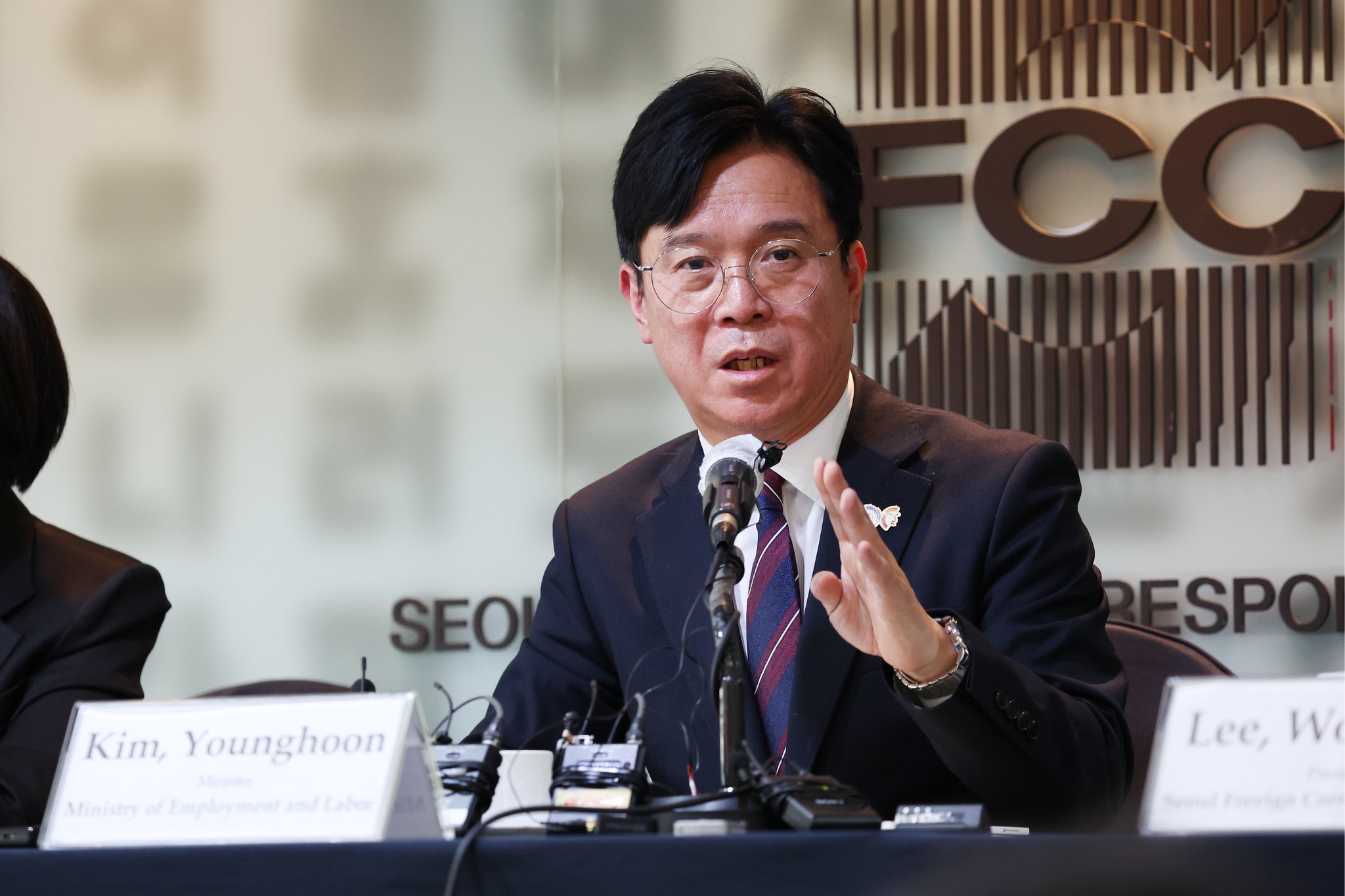
Image caption: Minister of Employment and Labor Kim Young Hoon speaking at the Seoul Foreign Correspondents Club's briefing at the Korea Press Center on October 20th. Image provided by Korea.net.
“In order to prevent demographic change from eroding our economic vitality and potential growth, we are concentrating efforts on building an environment in which diverse talent - youth, women, middle-aged and older workers, and foreign workers - can participate freely and actively in our labor market,” he said.
To delve deeper into the issue of Korea’s youth employment and education, after the briefing I caught up with Minjung Kim, Founder and CEO of Korea PEN, to get her take on the challenges facing Korean youth in the current job market and the policies that are seeking to address these core issues.

Image caption: Korea PEN Founder and CEO, Minjung Kim. Image provided by Korea PEN.
Q1. Could you introduce Korea PEN and your work with Korean youth to prepare them for the job market?
Korea PEN serves as the Korean Central Office of PEN Worldwide, a global network spanning over 40 countries with more than 80 years of history in promoting the concept of “Learning by Doing” through the Practice Enterprise (PE) model. We connect education, businesses, and young people—creating a bridge between academic learning and real-world employment.
We collaborate with universities, high schools, and local governments to provide students with hands-on, work-based learning experiences by running simulated companies known as Practice Enterprises.
Our core philosophy is “Experience work before employment, and employment before entrepreneurship.”
Korea PEN’s flagship programs include the Practice Startup and Hybrid Internship initiatives. Through these, students develop essential employability and entrepreneurial skills such as teamwork, communication, problem-solving, and digital literacy. These programs aim to serve as practical stepping stones—not only toward meaningful employment but also toward future entrepreneurship.
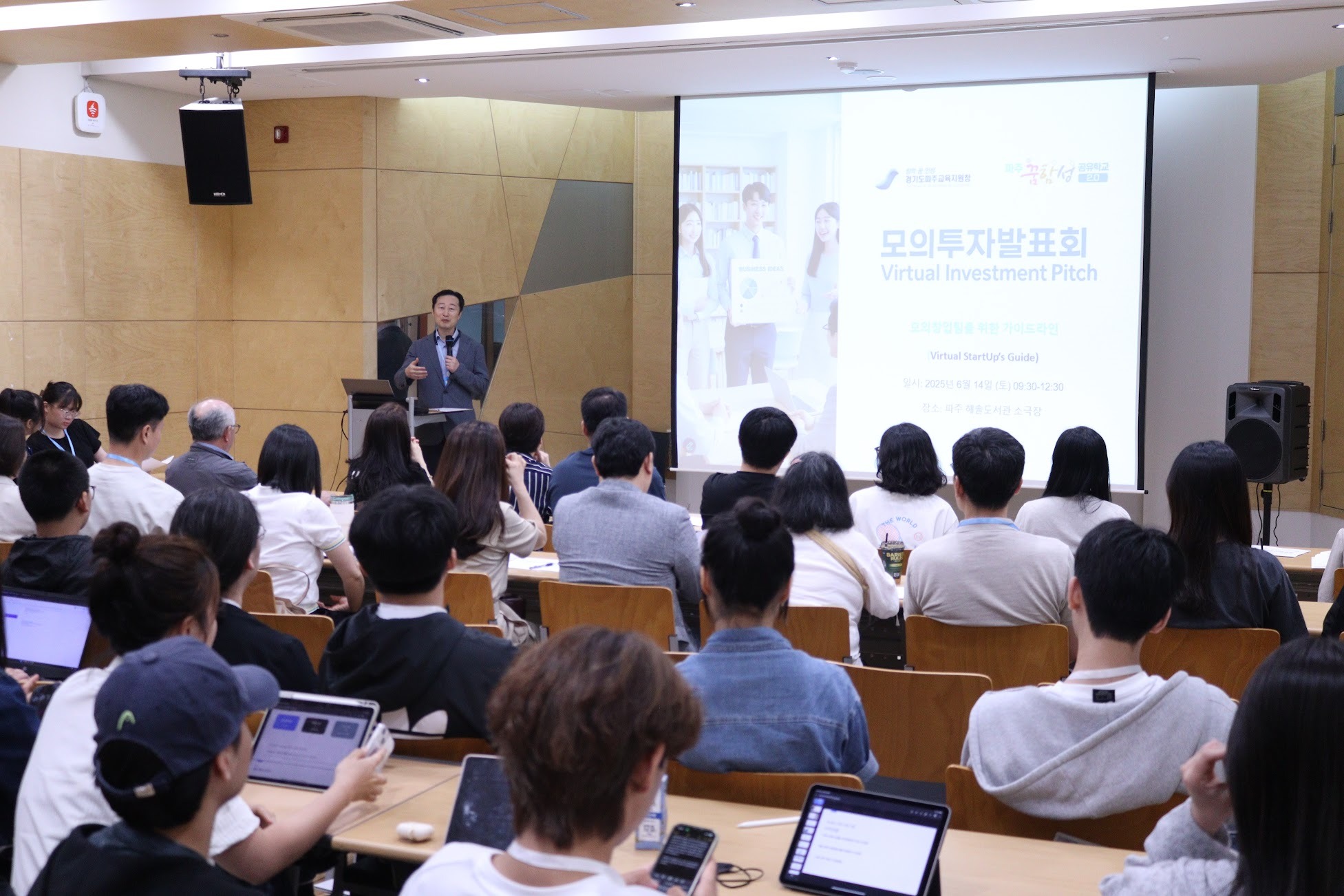
Image caption: Secondary school students participate in a Practice Startup (entrepreneurship program) Virtual Investment Pitch workshop. Image provided by Korea PEN.
Q2. The recent Cambodian incident has once again highlighted the issue of youth unemployment in Korea. How do you view the difficulties young people face in finding jobs outside major conglomerates, and what kinds of policies do you think would help?
This is a very real and visible challenge. Many young people continue to focus on securing positions at a few large conglomerates, while small and medium-sized enterprises (SMEs) and startups struggle with talent shortages. This reflects a structural mismatch in the labor market.
Another critical issue is that AI automation is dismantling what we might call the “learning ladder.” In the past, university graduates could begin their careers with entry-level or assistant roles that allowed them to learn about organizational culture and workflows, progressing to be a manager through the stages of Learning–Growth–Progress. Now, as AI replaces many of these entry-level positions, young people are losing opportunities to gain the foundational work experiences needed to transition smoothly into professional life.
Therefore, education must go beyond simple task training to create environments that replicate real workplace structures, communication, and collaboration. These should be coupled with project-based experiences that cultivate the competencies companies actually need.
In countries such as Germany, Austria, Switzerland, and the Czech Republic, this form of work-based learning is supported by the government and even embedded into compulsory education. If Korea could establish similar systematic government-led policies—linking SMEs with training programs that provide practical and project management education at a level comparable to large corporations—it would create mutual growth for both youth and industry.
Q3. How do you think the Yellow Envelope Act will impact Korean industries, especially in relation to vocational education?
The Yellow Envelope Act is a highly meaningful law that reinforces the recognition of workers’ rights in a democratic society. This awareness is essential in vocational education as well, but if it is addressed only through lectures and theory, it risks becoming indistinguishable from traditional labor education.
What matters is helping young people understand why such rights and systems are important—by experiencing them from the worker’s perspective.
Beyond workers’ rights, education should also foster the perspective of citizens who contribute to the state through taxes, nurturing a broader understanding of how economic systems function.
In the PEN Worldwide Practice Enterprise program, students act as founders and employees of simulated companies, indirectly experiencing responsibilities such as social insurance payments, value-added tax (VAT), and corporate tax filing. Through this process, they come to understand both the rights and responsibilities of being a working, tax-paying citizen.
I believe such experience-based learning should begin as early as middle school, where students can internalize the value of economic participation through real-world simulation.
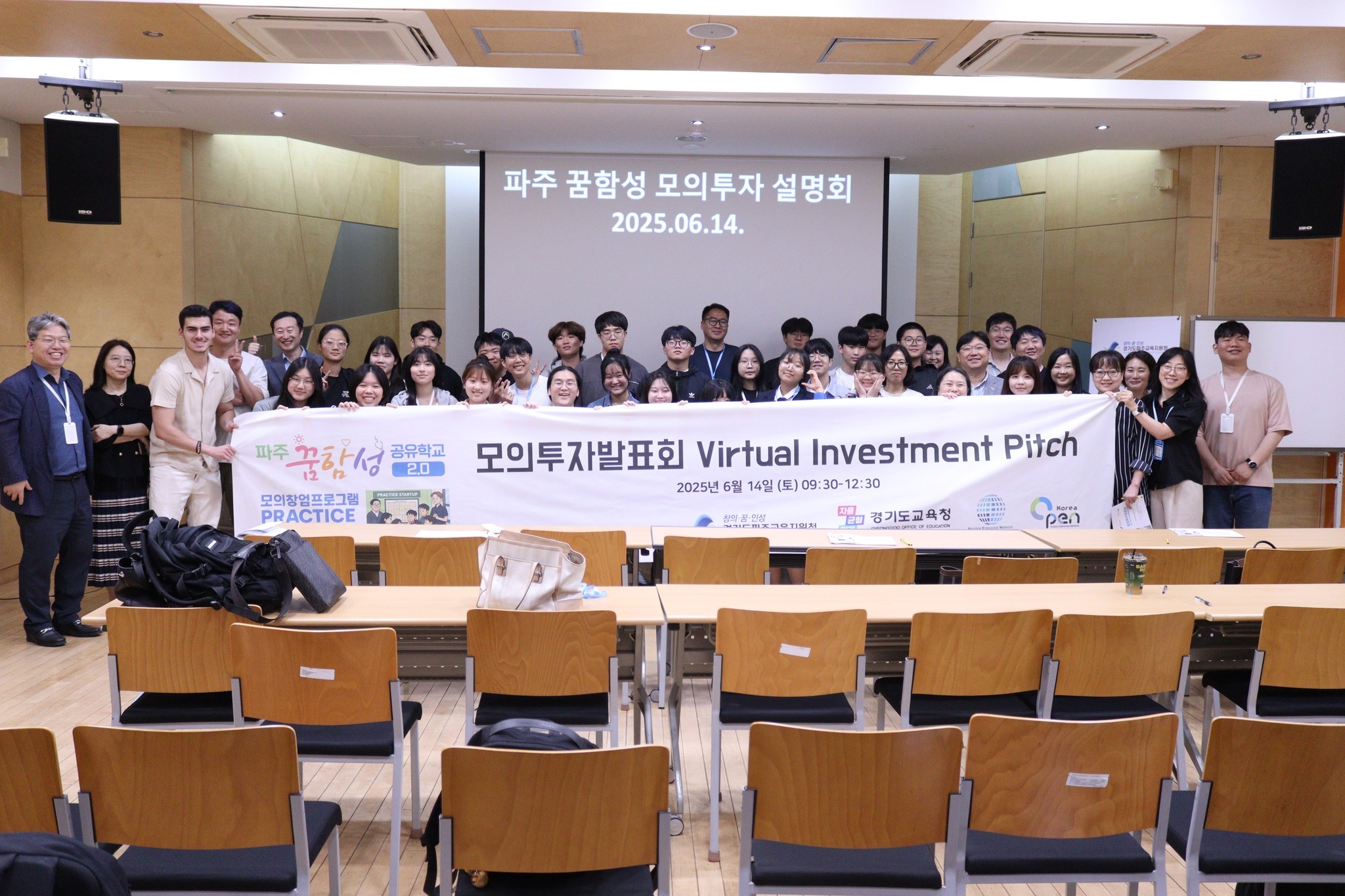
Image caption: Secondary school students participate in a Practice Startup (entrepreneurship program) Virtual Investment Pitch workshop. Image provided by Korea PEN.
Q4. How does Korea’s youth employment situation compare to that of other countries? Are there international models or best practices that could be applied here?
Korea still places strong social emphasis on the traditional path of “prestigious university → large corporation → stable job.”
In contrast, countries such as Germany, Austria, Switzerland, Belgium, and the Netherlands have developed career systems that focus on work, professional skills, and practical development rather than company reputation or social status.
In Germany, for example, the company-led vocational education system is central. The government provides institutional frameworks, companies deliver on-site training, and schools supply theoretical foundations.
A key feature of this system is that it is not simply about sending students to companies, but about creating a feedback loop in which companies clearly define their practical workforce needs, educational institutions design and operate programs to meet those needs, and the outcomes are linked back to corporate evaluation.
If Korea adopts such a “triangular cooperation model” among government, industry, and education, it would improve not only youth employment rates but also job quality. This approach helps young people understand the real flow of industry operations while enabling companies to secure job-ready talent.
Q5. The Korean government has emphasized reducing discrimination in the labor market, including between Korean and foreign workers. Do you have plans for programs that help both Korean and international youth prepare for the job market?
Yes, we do. There is growing interest among foreign youth who wish to work in Korea. While in the past many foreign workers were employed in low-skilled or temporary positions, today an increasing number of highly educated professionals from advanced Western countries are also seeking career opportunities here. I believe that effectively connecting their capabilities with Korean companies could bring significant benefits, particularly for export-oriented industries.
As the Korean office of PEN Worldwide, Korea PEN runs programs where Korean and international students form teams to engage in job simulations, startup practice, and project-based work experiences.
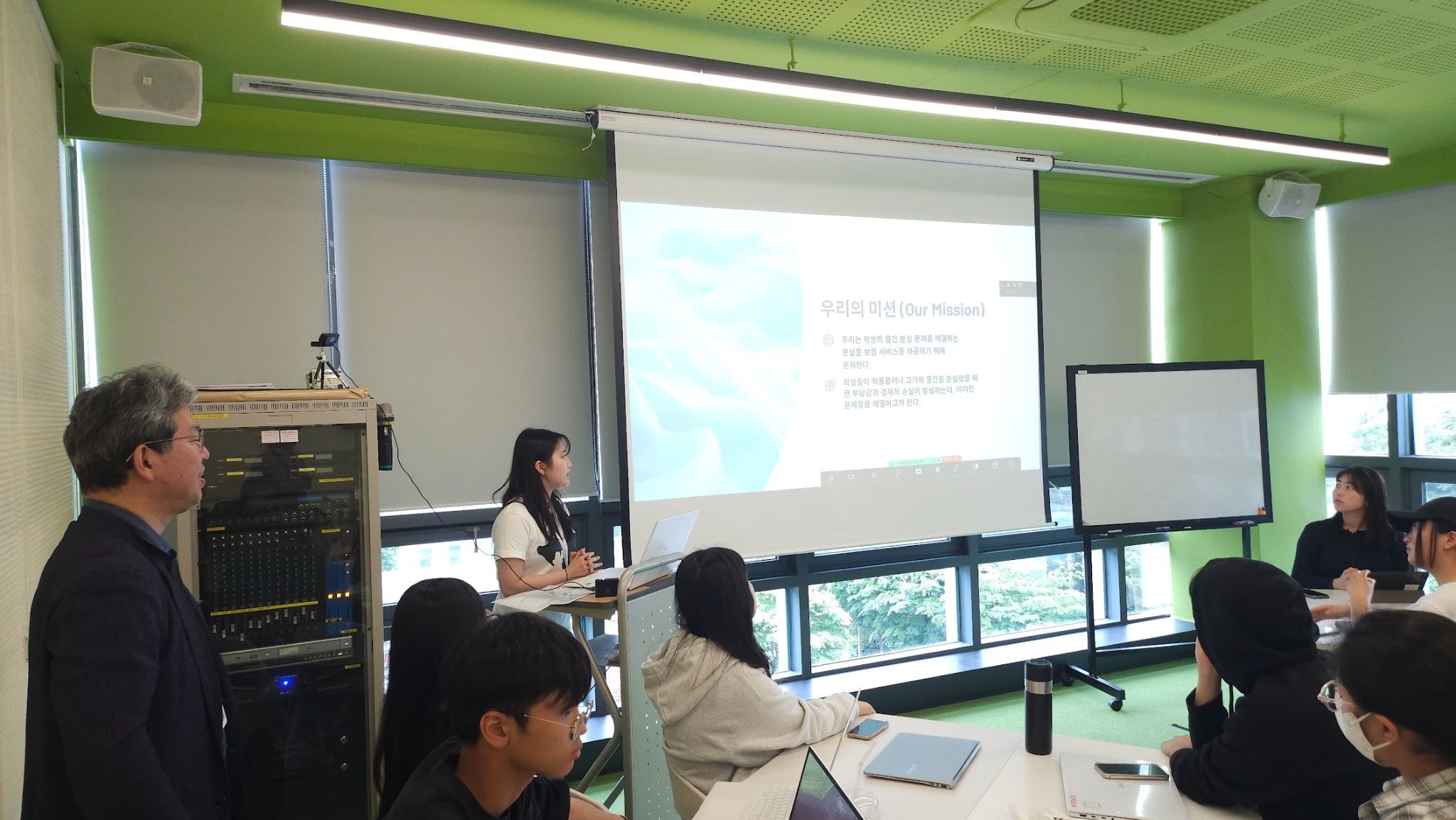
Image caption: Secondary school students participate in a Practice Startup (entrepreneurship program). Image provided by Korea PEN.
We are also developing initiatives that connect real-world business challenges faced by Korean companies with international youth teams. This provides startups aiming for global expansion with valuable international perspectives and ideas, while offering a coordination role within the program to help SMEs and startups—especially those with limited foreign language capabilities—participate more easily.
Currently, we are expanding bilingual Practice Enterprise programs that operate in both Korean and English, and we are also enhancing AI-integrated workflows where AI functions as a team member. Participants gain firsthand experience in human–AI collaboration, strengthening both their global and digital competencies.
Ultimately, these programs aim to go beyond traditional foreign student training, evolving into a future-oriented talent development platform that integrates multicultural, multilingual, and multidisciplinary innovation.
How about this article?
- Like4
- Support0
- Amazing0
- Sad0
- Curious0
- Insightful0


